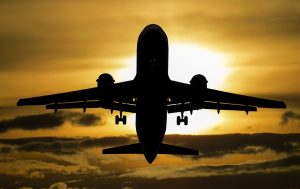 One of the most common complaints among residents living around major airports is the noise. Landings and takeoffs produce a significant amount of noise, creating a chaotic environment for nearby residents. However, researchers from the Massachusetts Institute of Technology (MIT) have come up with a simple and effective solution.
One of the most common complaints among residents living around major airports is the noise. Landings and takeoffs produce a significant amount of noise, creating a chaotic environment for nearby residents. However, researchers from the Massachusetts Institute of Technology (MIT) have come up with a simple and effective solution.
MIT researchers conducted a study with the Massachusetts Port Authority to investigate the problem of airplane noise. They concluded that slowing down the speed of airplanes by 30 knots would significantly reduce the level of noise heard by nearby residents. And in case you were wondering, 30 knots is equal to 34 miles per hour, so it’s not a substantial difference in speed. Researchers say that slowing airplanes down by this amount will create a quieter environment for residents, thus reducing noise complaints.
While viewed as a nuisance by many, airplane noise can trigger health problems. MIT researchers say that expose to loud noise can trigger stress, which in turn increases the risk of heart disease — the number of cause of death among men and women in the United States. Furthermore, exposure to loud noise can hinder cognitive development in children while also resulting in a lower quality of life. For these reasons and others, aviation experts throughout the country are exploring ways to reduce airplane noise.
“There can be health related consequences of exposure to community noise,” wrote MIT researchers. “Noise can also cause cognitive impairment in children, which can lead to a subsequent impairment in the quality of life.”
MIT researchers say that a typical Boeing 737 flying 30 knots slower during takeoff would only add about 30 seconds to the time required to reach an altitude of 30,000 feet. Slowing down the speed would also make airplanes less efficient, however. Again, the difference is nominal, with researchers saying that it will force airplanes to consume about seven extra gallons of fuel. When multiplied by the hundreds of flights coming in and out of airports on a daily basis, though, that additional gas usage can add up.
Will airplanes begin to fly slower to reduce noise? Maybe in the near future this will happen, but there’s no indication of airlines slowing down their flights anytime soon.
Of course, another solution is to use electric airplanes. Boeing is already working with a smaller company to develop an electric airplane, which it hopes to launch within the next few years. An electric plane would eliminate the need for a combustion-powered gas engine — and this would significantly reduce the noise it creates.



